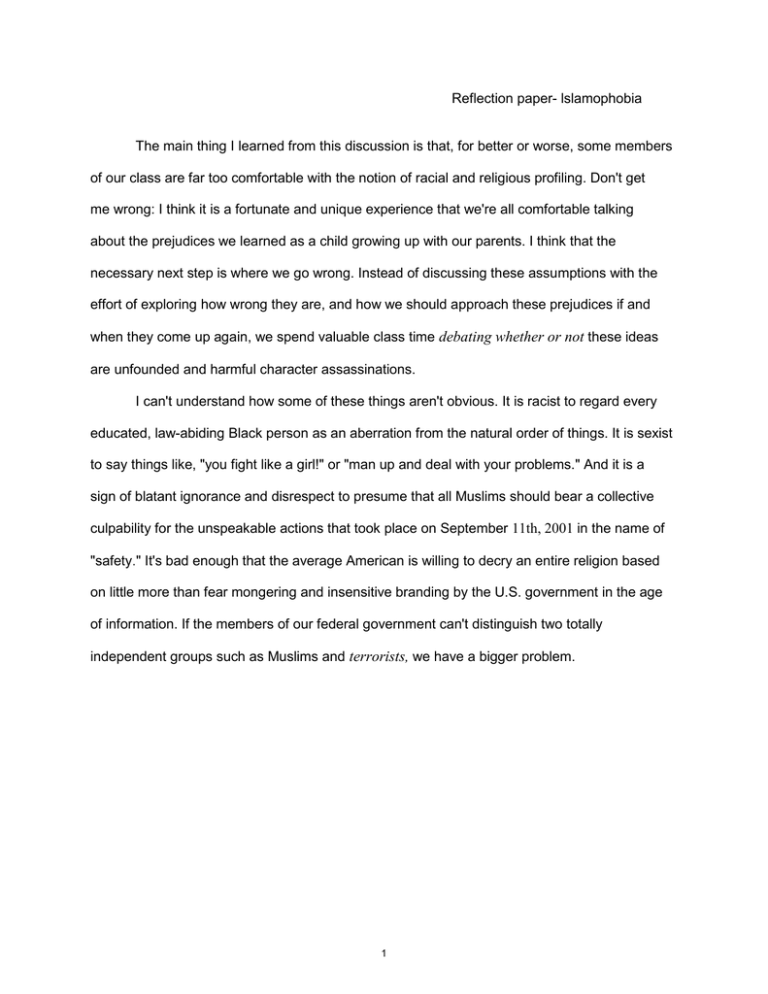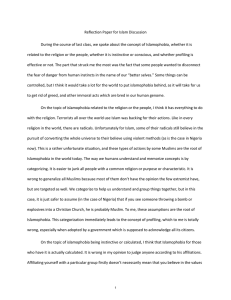Reflection paper- lslamophobia
advertisement

Reflection paper- lslamophobia The main thing I learned from this discussion is that, for better or worse, some members of our class are far too comfortable with the notion of racial and religious profiling. Don't get me wrong: I think it is a fortunate and unique experience that we're all comfortable talking about the prejudices we learned as a child growing up with our parents. I think that the necessary next step is where we go wrong. Instead of discussing these assumptions with the effort of exploring how wrong they are, and how we should approach these prejudices if and when they come up again, we spend valuable class time debating whether or not these ideas are unfounded and harmful character assassinations. I can't understand how some of these things aren't obvious. It is racist to regard every educated, law-abiding Black person as an aberration from the natural order of things. It is sexist to say things like, "you fight like a girl!" or "man up and deal with your problems." And it is a sign of blatant ignorance and disrespect to presume that all Muslims should bear a collective culpability for the unspeakable actions that took place on September 11th, 2001 in the name of "safety." It's bad enough that the average American is willing to decry an entire religion based on little more than fear mongering and insensitive branding by the U.S. government in the age of information. If the members of our federal government can't distinguish two totally independent groups such as Muslims and terrorists, we have a bigger problem. 1 MIT OpenCourseWare http://ocw.mit.edu 17.S914 Conversations You Can't Have on Campus: Race, Ethnicity, Gender and Identity Spring 2012 For information about citing these materials or our Terms of Use, visit: http://ocw.mit.edu/terms.

